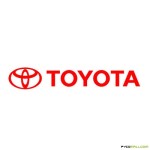
………………………………………………………………………………………………………………………………………………….
We’ve all heard about the hundreds of Toyota cars that have been recalled due to sticking accelerators and the pedal entrapment issues (or the “big boo boo”). While Toyota has to gone to great measures to fix these issues, an even bigger question remains. Will the Toyota brand survive this tremendous hit and how have they responded to this crisis? This is a touchy topic, for many reasons. How do you put trust back into a brand that’s caused so many tragedies by way of a seemingly easily fixable flaw? Transparency and equity are the answers. Whether you stand by them or not, you have to give credit to Toyota for the effort that’s gone into their new customer loyalty ads that have been focused on transparency. In these ads Toyota is admitting their wrongs, being clear and concise on how they plan to right them, and rewarding customers that choose to stay loyal to the brand; a tactic that can be very humbling to such an established company.
I can only speak for myself when I say, I still want a Toyota. I want a car that says responsible, logical, and that I’ve made it. That’s Toyota’s equity. They’ve managed to position themselves within that area, appealing to a variety of economical demographics. This position is why they have an equity cushion padded enough to withstand such a large hit. Think of it like a bank account: if your average balance was six figures, chances are a thousand five dollar deductions aren’t going to put you in the red.
The recall site Toyota has created not only houses their responses to consumer questions, it also lists links, articles and opinions from outside sources, both negative and positive. In an industry where your sole survival depends on reputation, marketing and brand position, would you say laying your brand out to be scrutinized is a good idea? Absolutely! From a branding perspective, you should want to know what the public thinks of you. If there’s a major “boo boo” within your organization, the best thing you could do is take it public before the media does it for you. Companies should “live what they sell”; Toyota has clearly gotten that concept. Since its first passenger car in 1936, Toyota has prided itself on safety, reliability and trust. When those key attributes were called into question, they kicked it up 5 notches, and have since been focused on building their equity back up one customer at a time.
Contributed by: Amanda Brodie
